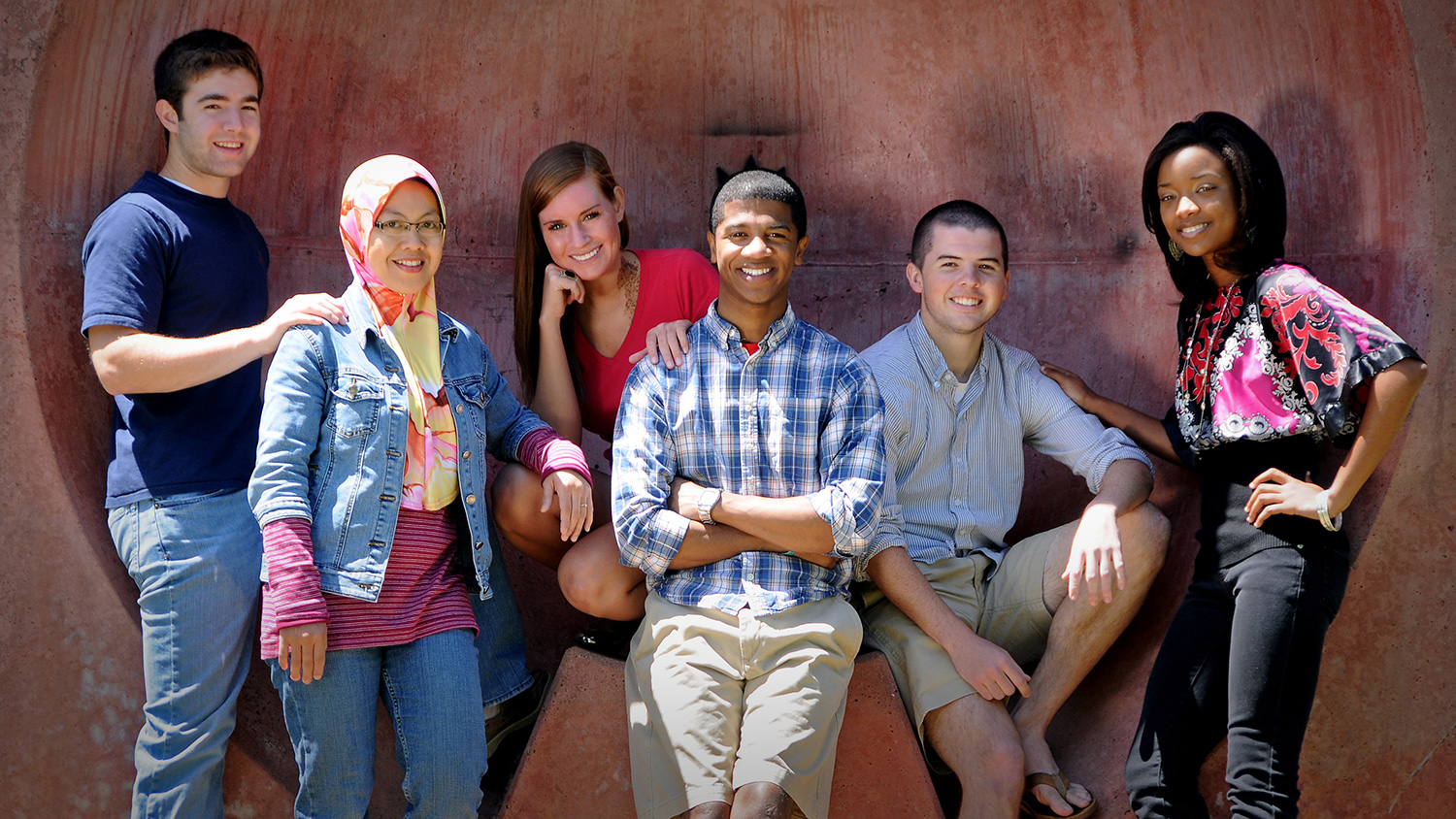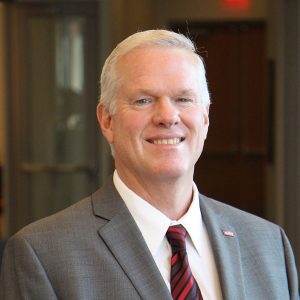Preparing for a Successful Year

Dear faculty colleagues,
Welcome back to campus for the 2018-19 academic year! This is one of my favorite times of the year as we welcome new and returning students, as well as a large number of new faculty, to campus. Wolfpack Welcome Week is well underway, and I hope you’ve had some time to get involved in the activities taking place around campus. Our new first-year students began arriving on campus in the past week, and with your hard work and dedication they will become successful graduates of the class of 2022.

The new academic year is already off to a great start! We have enrolled a record number of first-time, first-year students this fall, with more than 4,930 arriving this week. And, as you have undoubtedly heard, it is also our most academically prepared cohorts, with average SAT scores of 1320, a weighted HS GPA of 4.59, and 77 percent in the top 20 percent of their high school class. In addition, the class is very nearly 50 percent female, the largest incoming female class ever, and 30 percent non-white.
Convocation was an exceptional event this week. We heard messages from Chancellor Woodson and Student Body President Jess Erico. The featured speaker was Kathryn Edin, professor of sociology and public affairs at Princeton University and co-author of our Common Reading Program selection, $2.00 a Day: Living on Almost Nothing in America. Nearly 4,200 students, faculty and staff learned more about how more than 1.5 million families, including more than 3 million children, face deep poverty with essentially no cash. This theme resonates with our students and fits well with our own work on addressing food and housing insecurity in our NC State students.
Events continue throughout the week, with the most important being the start of your classes. I do encourage you to enjoy some of the activities throughout the week, in particular Packapalooza this coming Saturday from 2 p.m.-10 p.m. on Hillsborough Street.
As you prepare for the new academic year, I encourage you to consider a few items. One of our primary goals at NC State is enhancing student success. With that in mind, I want to again remind you of that which you already know: you, the faculty, have the primary impact on our students and their progress. I urge you to discuss the following topics with your students during the first week of class, especially with new freshmen who may not yet understand what it takes to be successful in a college environment.
Attendance
- Regular class attendance provides a strong indicator of student academic success. Students who are missing classes are less successful. Remind your students that classroom activities remain equally important to outside assignments, and often cover material that students can’t get elsewhere.
- Review the Attendance Regulation – REG 02.20.03
- Instructors must take attendance in 100 and 200 level courses.
- The policy covers excused absences, including student representation of the university (e.g., Athletics), military commitments, religious observances, and death/illness in the family.
- You must provide a fair and equitable arrangement for students to make up work for excused absences.
Classroom Engagement
While moving through the semester, consider discussing with your students:
- How they can engage in and out of class with you, fellow classmates and the material covered. Discuss your expectations with your students.
- How to prepare for class, in order to make their classroom learning more productive.
- The importance of office hours as a means to engage with you.
Also consider your pedagogy and how best to design activities that promote continual engagement. Consider participating in our TH!NK program, which develops pedagogy around critical and creative thinking in your classes. Also, consider contacting the Office of Faculty Development. Of course, please remember to emphasize that meaningful interaction between students and faculty outside the classroom will greatly enhance classroom learning.
Academic Integrity
Please consider using the Pack Pledge on your syllabi, assignments, exams, and any other academic evaluations. The Pack Pledge states, “I have neither given nor received any unauthorized aid on this test or assignment.”
If a student chooses to violate that pledge, it is your responsibility to hold him or her accountable. If a student cheats in your class, there is a strong chance he/she will cheat in another. Please talk to your students about the importance of being a contributing, ethical member of this community of scholars. For assistance in promoting academic integrity and addressing violations, please contact the Office of Student Conduct.
Academic Support
Your students may need extra support outside of class. Resources available to them for academic support that you or others can offer, include:
- Office hours
- Tutoring, including the University Tutorial Center
- College/departmental advisors and support services
- DASA’s Academic Advising Services
Student Support
Please remember that while students strive for success, they may encounter mental and physical health situations that may detract from their ability to thrive in an academic atmosphere. If you have a struggling student, especially during the beginning of the semester, please consider submitting an Academic Progress Report through the MyPack Portal Faculty Center or Advising Dashboard, or via the Student Success GPS platform.
If you have a student exhibiting concerning behavior, please take one or more of the following steps:
- Refer the student to a CARES Case Manager through our NC State CARES Team. We can assist students who may be having difficulties, and you will also find a number of resources that may be useful to you as you work with your students.
- If a student is in distress, please refer the student to the Counseling Center, and if your concerns warrant, escort the student to the center.
If you become aware of a student who is experiencing food, housing or financial insecurity, please encourage them to check out the Pack Essentials website for a listing of basic needs support. If they want to discuss their situation and review available resources in a confidential meeting with the student ombuds, they can schedule an appointment by calling 919-513-3401.
Also remember that students with documented disabilities may need reasonable accommodations for equitable educational access. If a student presents to you requesting accommodations, feel free to contact the Disability Resource Office for help on meeting these reasonable accommodations.
Emergency Information
Finally, I encourage you to include emergency information in your syllabus. The Department of Emergency Management and Mission Continuity developed examples for review that are located on the Faculty Resource page of Emergency Management & Mission Continuity’s website, with new information posted regularly. Below is a recommended paragraph for quick reference:
- Emergency Preparedness: Familiarize yourself with the building(s) that you frequent. Know the layout, including exit locations, stairwells and the Emergency Assembly Point (EAP). Review the “Quick Guide for Emergencies” that is found near the door in many classrooms for specific emergency information and instructions. If the quick guide is not available in your classroom or for additional information, visit wolfalert.ncsu.edu or go.ncsu.edu/EMMC. To receive emergency notifications, make sure your information and cell phone number is updated in MyPack Portal.
- To report an emergency: call 911 from a campus landline or 919-515-3000 from a cell phone while on campus.
The Division of Academic and Student Affairs is dedicated to the success of the whole student — academically, socially, mentally and physically. We work with colleagues across campus to assist our students in making timely progress toward a degree and become productive citizens and leaders. For more details of campus efforts over the past several years, please see the Provost’s Five-Year Student Success Report.
Thank you for being an integral part of the success of NC State students. I look forward to an engaging and productive 2018-2019 academic year. Please contact me if you would like to learn more about ways to achieve student success and the Division of Academic and Student Affairs.
Sincerely,
Mike Mullen
Vice Chancellor and Dean
Professor of Soil Science
Division of Academic and Student Affairs


